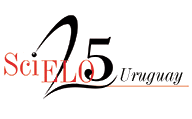Terraforming. The seminal proposals of the Centro Rural de Arte
DOI:
https://doi.org/10.25185/14.10Keywords:
Contemporary art, Nature, Environment, Earthly aestheticsAbstract
This article analyzes some of the proposals by the Centro Rural de Arte, a Buenos Aires platform for artistic projects that has been working since 2008 on the creation of poetics of the earth. To understand this practice, I present what I have named terraforming: aesthetic experiences that bring together concerns for the territory and the environment. These are seminal proposals where nature, rather than being a subject, is an experience of the world that is lived from the body. Returning to the concept of body-territory of Latin American feminisms, I present how the work of the Centro Rural de Arte has delved into a diversity of experiences that include walks, residences, meetings, interviews, compilation of cookbooks, interventions in markets and publications. If the concept of a body without organs proposed by Gilles Deleuze and Félix Guattari served as a metaphor to explain the disorders of post-modernity, through the work of the Centro Rural de Arte we will see how in the 21st century the body becomes organic, interdependent and territorialized, filling itself with affections and sensibilities.
Downloads
References
Andermann, Jens. Tierras en trance. Arte y naturaleza después del paisaje. Santiago: Ediciones metales pesados, 2018.
Bloch, E. El principio esperanza, Vol. 1. Madrid: Aguilar Ediciones, 1977.
Borriaud, Nicholas. Radicante. Buenos Aires: Adriana Hidalgo editora, 2009.
Castaño, Martha Cecilia. “Una aproximación a Michel Maffesoli”. Revista colombiana de Ciencias sociales 3, nº 1 (2012): 104-114. https://www.redalyc.org/pdf/4978/497856286008.pdf
Centro Rural de Arte. Acceso el 2 de abril de 2023. http://www.centroruraldearte.org.ar/bio
Deleuze, Gilles y Félix Guattari. Mil Mesetas. Capitalismo y Esquizofrenia. Valencia: Pretextos, 1998.
Demos,T. J. Descolonizar la naturaleza. Arte contemporáneo y políticas de la ecología. Madrid: Akal, 2020.
Gago,Verónica. La potencia feminista o el deseo de cambiarlo todo. Buenos Aires: Tinta Limón, 2019.
Gómez-Barriz, Macarena. The Extractive Zone. Social Ecologies and Decolonial Perspectives. Durham: Duke University Press, 2017.
Haraway, Donna J. Seguir con el problema, generar parentezco en el Chthuluceno. Bilbao: Consonni, 2019.
Herrero, Yayo. “Sujetos arraigados en la tierra y los cuerpos. Hacia una antropología que reconozca los límites y la vulnerabilidad”. Ponencia presentada en el 39 Congreso de Teología: Justicia y compasión en un mundo desigual, 6 a 8 de septiembre de 2019, acceso el 3 de abril de 2023.
Mancuso, Stefano y Alessandra Viola. Sensibilidad e inteligencia en el mundo vegetal. Barcelona: Galaxia Gutenberg, 2015.
Nancy, Jean-Luc. Corpus. Madrid: Arena Libros, 2003.
Otero, Gerardo. La dieta neoliberal. Ciudad de México: Rosetta, 2022.
Plataforma Lodo. Acceso el 2 de abril de 2023. http://lodo.com.ar/lodo/
Rivera Cusicanqui, Silvia. Un mundo ch’ixi es posible. Ensayos desde un presente en crisis. Buenos Aires: Tinta Limón, 2018.
Virilio, Paul. Velocidad y política. Buenos Aires: La Marca, 2007.
Published
How to Cite
Issue
Section
License
Copyright (c) 2023 Yunuen Díaz

This work is licensed under a Creative Commons Attribution 4.0 International License.





























 This work is under a
This work is under a 